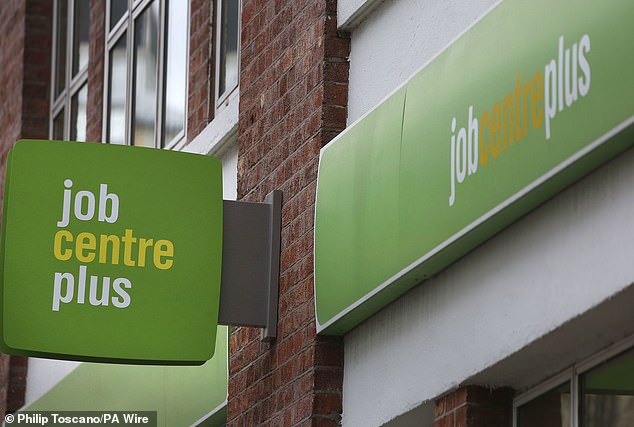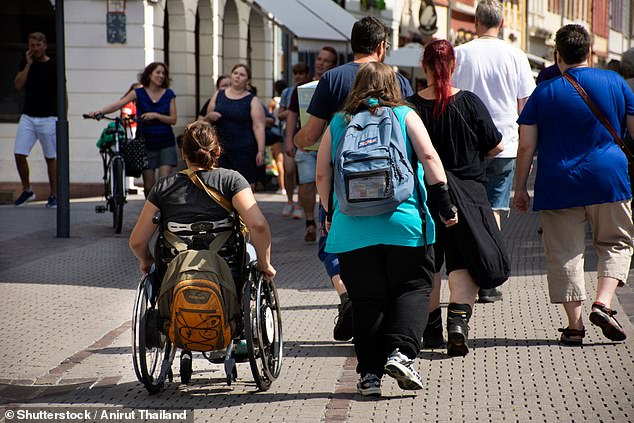- Approximately one in ten people (3.9 million) receive disability benefits.
The number of Britons receiving disability benefits has soared, although similar increases have not been recorded in other developed countries.
One in ten people of working age (around 3.9 million people) currently receives disability benefits.
Data from the Institute for Fiscal Studies also shows a 150 per cent rise in new disability claims from under-40s over the past four years, and a sharp increase in the number of claims for mental health benefits.
But the research highlights how benefit claims are rising at a much faster rate in Britain than elsewhere, although other comparable countries have also seen a rise in reported disability cases.
This will inevitably fuel the growing perception that the UK welfare system is open to manipulation by slackers.
The number of Britons receiving disability benefits has soared, although similar increases have not been recorded in other developed countries (file image)

One in ten people of working age (around 3.9 million people) currently receives disability benefits (archive image)
The IFS revealed that the total number of people receiving health-related benefits increased by 38 per cent, from 2.8 million people, in just four years.
Real-terms spending on such benefits over this period has risen by a third, from £36bn to £48bn, and is expected to reach £63bn by 2028.
The rise in claims has occurred in all local authorities in England and Wales except the City of London, and official forecasts are for further growth.
There are now 20 local authorities where more than one in seven people aged 16 to 64 are claiming health-related benefits, up from two before the pandemic.
In contrast, applicant numbers have declined or remained stable in most comparable countries.
Denmark is the only other nation with significant growth, but (up 13 percent since 2019) it is much slower than growth in the UK.

Data from the Institute for Fiscal Studies also shows a 150 per cent increase in new disability claims from those under 40 over the past four years (file image)
The proportion of people reporting a disability has also increased in the UK and comparable countries, although the increase in the UK has been faster than average.
John O’Connell, of the TaxPayers’ Alliance, said: “The unprecedented increase in demand placed on the state is clearly unsustainable.”
The number of new disability benefits awarded to people under 40 has increased from 4,500 per month in 2019/20 to 11,500 per month in 2023/24.
Health Secretary Wes Streeting has promised reforms, adding: “If we fail to act, by the end of this parliamentary term 4.3 million people could be off work sick.”


